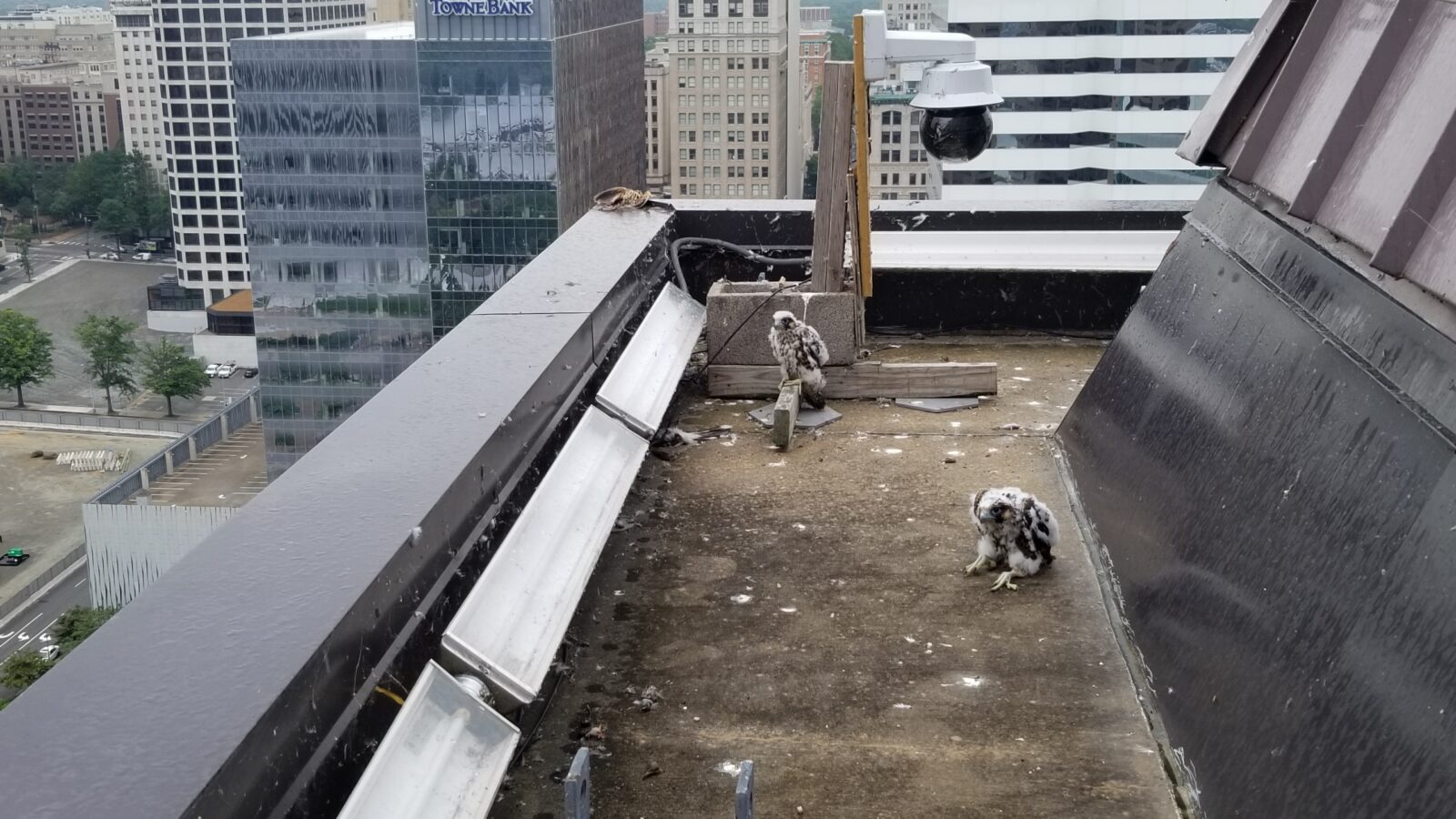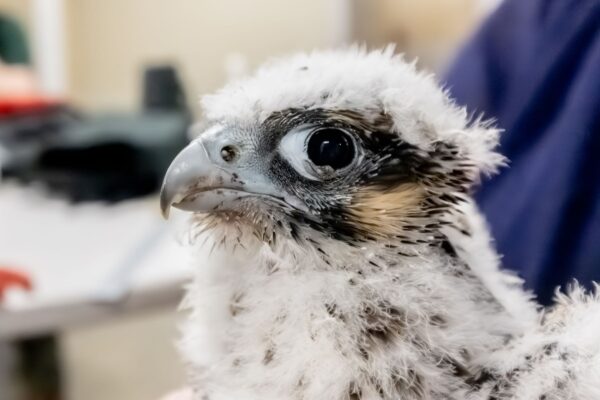Chicks have Received their Bands
Virginia Department of Wildlife Resources biologists accessed the nest box at approximately 10:00 am on Friday (5/24) to band the four chicks and install the pen which will prevent any premature fledging events.

A glimpse of the ledge where the nest box is located — two chicks can be seen prior to capture, one of which is perched on the foundation of the camera. A prey item (Yellow-billed Cuckoo) has been cached by the adults and is visible on the ledge behind the camera.
Viewers will likely notice that there is one chick currently missing from the pen following our banding efforts this morning. While monitoring the camera earlier in the week we noticed a small cyst-like nodule on the eyelid of one of the chicks. Once we had the bird in hand and were able to consult with the Wildlife Center of Virginia, the decision was made to transport the bird to the center for additional examination and surgical removal of the nodule. The outlook for this chick is incredibly positive and we hope to have it returned to the pen in the following week pending examination results and recovery from the procedure. We will continue to update the blog with additional information pertaining to the situation as we learn more.

Nodule present on the eyelid of the otherwise healthy-appearing chick (“Red”) that has been transported to the Wildlife Center of Virginia.
Similar to the past three years, the 2024 brood is comprised of a perfect 50/50 sex ratio with two males and two females. Falcon sex is determined at banding, as the females have larger legs and thus receive larger bands relative to males. Each chick received a federal band on the right leg with temporary colored tape affixed to this band to help biologists keep track of the chicks after they fledge. This tape should fall off naturally within a few weeks. In addition to their federal bands, each chick received a “field-readable” black over green band. Finally, each chick was weighed and had a wing chord measurement (an anatomical measurement of a bird’s wing) taken.

Following all data collection and banding, the chicks were returned to the nest box and secured inside the pen which is installed each year to prevent the chicks from fledging early. When the chicks are old enough to fledge, a device will be placed on the pen door allowing biologists to remotely open the door. At this point the chicks will be free to disperse from the nest box and pen at their leisure.
These banding and monitoring efforts are incredibly important as they allow biologists to track the movements, lineages, reproductive history, and longevity of individual birds. This is especially important in small falcon populations that are still recovering, as is the case in Virginia!

